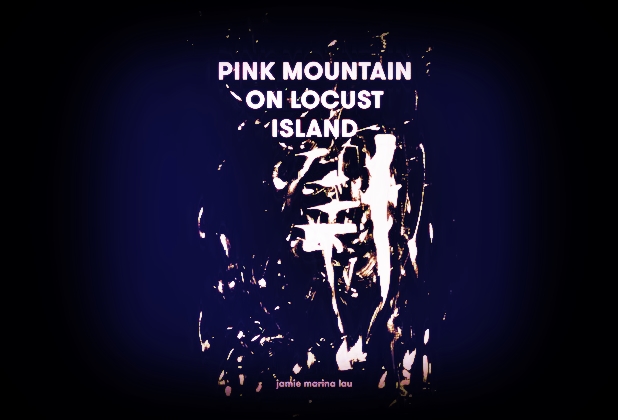Adolescence is hard. It’s tiring. It’s frustrating. Will Smith was absolutely right: parents just don’t understand, and they’ve completely forgotten what it was like. Teenagers are constantly ignored, slighted, bamboozled, and shunted to the side. They have the expectations of acting like decent, responsible grownups with absolutely ZERO benefits or agency. It’s all one big con. If you act right, think right, and do right as a teenager, things will work out as an adult.
But we also forget that adolescence is really fuckin’ boring.
Until you get a car (and sometimes after that) you can’t really do anything besides bike around your neighborhood, hang with friends, go to school, and sit at home. Wash, rinse, and repeat ad infinitum. As Jason Diamond talks about in chapter 8 of The Sprawl, the main reason teenagers both get into trouble and start-up ennui-fueled garage rock bands is because they have a rather boring existence.
Despite what you might read in your average YA novel about plucky teens rising up against the “big bad” in their high school, life, or small town, or boredom and the fight against it, its the true plight of the average adolescent.
Most kids aren’t Harry Potter, Buffy Summers, or even Archie Andrews.
Instead, they’re the blurry extra at the edge of the frame. The same one worrying about their next school assignment, what’s for dinner that night, or the upcoming weekend chores.
Teenagers en masse are simply trying to get through yet another day. Even as they seek for something bigger and more meaningful than themselves. The tension between their humdrum lives and dreams of a larger world is captured to delirious effect throughout the pages of Pink Mountain on Locust Island.

Written by Jamie Marina Lau and published by Coffee House Press, Pink Mountain On Locust Island chronicles an approximate year in the life of a teenage girl named Monk. The ostensible plot looks like this:
- She meets and eventually dating a high school senior named Santa Coy, an artist.
- After bringing him home to dinner one night, he hits it off with her dad, which makes her happy.
- Santa and Monk’s Dad immediately fall into various art-related shenanigans to the point that Santa ignores Monk.
- Santa and Monk’s dad doesn’t explain anything they’re doing to Monk, even as they make money with Santa’s art.
- The money eventually begins to dry up,
- Monk gets involved with the drama between her aunt and her friend Yuya’s mother, Honey.
- All of the intertwining threads of the novel come to a rather frenetic close.

As intriguing as a noir crime thriller as it might be, what kept me turning the pages of this book was Lau’s utter mastery of Monk’s teenaged moods, quirks, and run-of-the-mill interests. Written as a rambunctious collection of mostly linear journal entries, Monk is completely an unreliable narrator. However, she’s also a very believable one. Clearly her perception may be skewed by adolescent myopia and naiveté, but I can’t help to be enamored with her sincerity and authenticity.
I don’t trust her memory in the slightest, but I want to know everything she’s doing and thinking.
Like any average teenager, she runs through a wide gamut of emotions and sensations just as a matter of course. From one scene to the next, sometimes within the same day or journal entry, she can be any number of adjectives relevant to the feverish hormones of adolescence:
- Languid
- Laconic
- Humid
- Horny
- Curious
- Confused
- Frustrated
- Focused
- Apathetic
- Animated
The very teenager-ness of Pink Mountain shines through again and again. Everything happens to Monk. Even when she tries to express agency, the adults in her world shut her out. It’s not like she’s really interested in what the adults are doing anyway. Plus it’s obvious she doesn’t have a good grasp of subtlety.
But I also think that’s kind of the point.
Monk doesn’t want to know what her dad and Santa Coy are really doing, but she does want to know why they’re ignoring her. She isn’t interested in why her aunt and Honey don’t get along, but she does want to figure out why they have such a curious relationship. She is unconcerned with the larger politics of her city, but intensely invested in the social lives of her friends.
That’s the beauty of Pink Mountain On Locust Island. It’s about an average teenager living life as best as she can, despite having no power, agency, or cultural influence. Like any teen, she wants a boyfriend, a job for some money, to have fun with her friends, and to do OK enough in school. The crimes of her father and boyfriend are tertiary to her just wanting them to be active and involved in her life. She feels alone.
She just wants someone to spend enough time with her so she knows that they value her.

And isn’t that what most of us really want out of life? Those particular feelings are sent into overdrive during adolescence and Lau illustrates them with clever grace and ample wit. Monk is both super-relatable and super-awkward, often within the same vignette.
If you’re tired of reading yet another novel about a whimsical forthright iconoclast convincing her friends to change their school for the better, you really should pick up Pink Mountain On Locust Island. Calling to mind a heady combination of Rian Johnson’s Brick, The Virgin Suicides (the book and the movie), and On Such a Full Sea by Chang-Rae Lee, this book captures your attention then pulls you headlong into the action.


